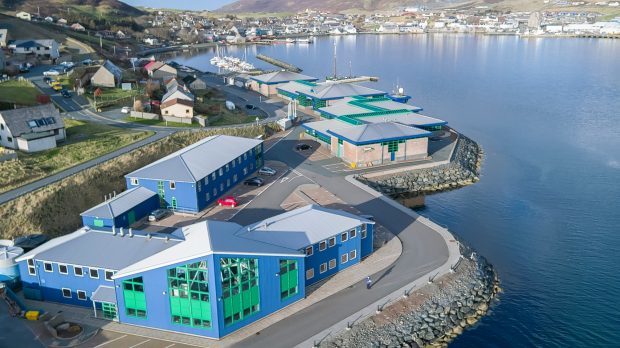A fisheries training and research institute in Shetland said it is “bursting at the seams” due to demand for its courses after a proposed merger with Shetland College was called off.
The Shetland School of Nautical Studies (NAFC Marine Centre) said it has not been busier at any time since it opened 22 years ago, although its faces questions over funding after it rejected a merger with Shetland College and Train Shetland.
A spokesman for NAFC said “discussions are going on at the moment about sharing management” with Scotland College, both of which are part of the University of the Highlands and Islands (UHI).
Demand for a wide range of courses from the fishing industry, aquaculture sector and shipping companies is at record levels, while the institute has the most students being taught the most courses in its history, it said.
And 51 secondary school pupils from around the islands regularly attend the centre in Scalloway for engineering and maritime skills courses as part of their studies.
Andy Glen, NAFC head of training and skills, said: “We are bursting at the seams, in the nicest possible way.
“The place is buzzing with students and staff. Some days, frankly, it is difficult to get a space in the car park.
“Apart from the ongoing issue of funding, the biggest problem we have at the moment is meeting the demand for places and everyone is hard at work trying to do just that.”
The centre, which opened in 1994, provides a huge range of services to the maritime industries, including research and development and consultancy and advisory support as well as education and training. The The centre is operated by a charitable trust, the Shetland Fisheries Training Centre Trust, and employs about 40 people.
Including school pupils, more than 150 students from those starting out on their careers to those returning for further training are currently attending the centre.
A record nine young fishermen recently began their Class 2 ticket course, which lasts for three months and entitles those who pass to skipper fishing vessels of up to 30m and to serve as mate on board larger boats.
Groups of pelagic fishermen are also embarking on an ECDIS (electronic chart display and information system) course that allows them to navigate electronically rather than using paper charts.
The centre is also close to its full complement of deck and engineering cadets while a range of new aquaculture courses are being be rolled out this year.
They include fish farm containment with 93 students already certificated, fish health with 41 students certificated, water quality awareness with 40 certificated and 40 more enrolled, advanced fish health and biosecurity, courses which begin in June and May respectively.
